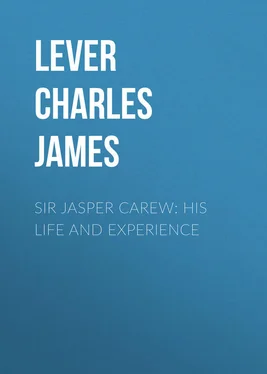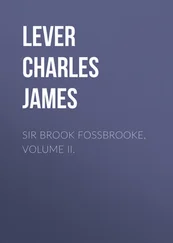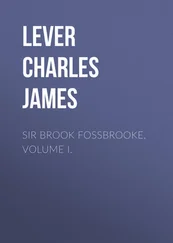Charles Lever - Sir Jasper Carew - His Life and Experience
Здесь есть возможность читать онлайн «Charles Lever - Sir Jasper Carew - His Life and Experience» — ознакомительный отрывок электронной книги совершенно бесплатно, а после прочтения отрывка купить полную версию. В некоторых случаях можно слушать аудио, скачать через торрент в формате fb2 и присутствует краткое содержание. Жанр: literature_19, foreign_antique, foreign_prose, на английском языке. Описание произведения, (предисловие) а так же отзывы посетителей доступны на портале библиотеки ЛибКат.
- Название:Sir Jasper Carew: His Life and Experience
- Автор:
- Жанр:
- Год:неизвестен
- ISBN:нет данных
- Рейтинг книги:5 / 5. Голосов: 1
-
Избранное:Добавить в избранное
- Отзывы:
-
Ваша оценка:
- 100
- 1
- 2
- 3
- 4
- 5
Sir Jasper Carew: His Life and Experience: краткое содержание, описание и аннотация
Предлагаем к чтению аннотацию, описание, краткое содержание или предисловие (зависит от того, что написал сам автор книги «Sir Jasper Carew: His Life and Experience»). Если вы не нашли необходимую информацию о книге — напишите в комментариях, мы постараемся отыскать её.
Sir Jasper Carew: His Life and Experience — читать онлайн ознакомительный отрывок
Ниже представлен текст книги, разбитый по страницам. Система сохранения места последней прочитанной страницы, позволяет с удобством читать онлайн бесплатно книгу «Sir Jasper Carew: His Life and Experience», без необходимости каждый раз заново искать на чём Вы остановились. Поставьте закладку, и сможете в любой момент перейти на страницу, на которой закончили чтение.
Интервал:
Закладка:
“But would you take mine, Mr. MacNaghten? Would you toil, and slave, and fag, – would you shut out the sun, that your daily labor should have no suggestive temptings to enjoyment, – would you satisfy yourself that the world should be to you one everlasting struggle, till at last the very capacity to feel it otherwise was lost to you forever?”
“That’s more than I am able to picture to myself,” said MacNaghten, sipping his wine. “I ‘ve lain in a ditch for two hours with a broken thigh-bone, thinking all the time of the jolly things I ‘d do when I ‘d get well again; I ‘ve spent some very rainy weeks in a debtor’s prison, weaving innumerable enjoyments for the days when I should be at liberty; so that as to any conception of a period when I should not be able to be happy, it ‘s clean and clear beyond me.”
Polly’s eyes were fixed on him as he spoke, and while their expression was almost severe, the heightened color of her cheeks showed that she listened to him with a sense of pleasure.
“I suppose it’s in the family,” continued Dan, gayly. “My poor father used to say that no men have such excellent digestion as those that have nothing to eat.”
“And has it never occurred to you, sir,” said Polly, with a degree of earnestness in her voice and manner, – “has it never occurred to you that this same buoyant temperament could be turned to other and better account than mere “ – she stopped, and blushed, and then, as if by an effort, went on – “mere selfish enjoyment? Do you not feel that he who can reckon on such resources but applies them to base uses when he condescends to make them the accessories of his pleasures? Is there nothing within your heart to whisper that a nature such as this was given for higher and nobler purposes; and that he who has the spirit to confront real danger should not sit down contented with a mere indifference to shame?”
“Polly, Polly!” cried her father, alike overwhelmed by the boldness and the severity of her speech.
“By Jove, the young lady has given me a canter,” cried MacNaghten, who, in spite of all his good temper, grew crimson; “and I only wish the lesson had come earlier. Yes, Miss Polly,” added he, in a voice of more feeling, “it ‘s too late now.”
“You must forgive my daughter, Mr. MacNaghten, – she is not usually so presumptuous,” said Fagan, rising from the table, while he darted a reproving glance towards Polly; “besides, we are encroaching most unfairly on your time.”
“Are you so?” cried Dan, laughing. “I never heard it called mine before! Why, Tony, it’s yours, and everybody’s that has need of it. But if you ‘ll not eat more, let me show you the grounds. They are too extensive for a walk, Miss Polly, so, with your leave, we ‘ll have something to drive; meanwhile I’ll tell the gardener to pluck you some flowers.”
Fagan waited till MacNaghten was out of hearing, and then turned angrily towards his daughter.
“You have given him a sorry specimen of your breeding, Polly; I thought, indeed, you would have known better.”
“You forget already, then, the speech with which he accosted us,” said she, haughtily; “but my memory is better, sir.”
“His courtesy might have effaced the recollection, I think,” said Fagan, testily.
“His courtesy! Has he not told you himself that every gift he possesses is but an emanation of his selfishness? The man who can be anything so easily, will be nothing if it cost a sacrifice.”
“I don’t care what he is,” said Fagan, in a low, distinct voice, as though he wanted every word to be heard attentively. “For what he has been, and what he will be, I care just as little. It is where he moves, and lives, and exerts influence, – these are what concern me.”
“Are the chance glimpses that we catch of that high world so attractive, father?” said she, in an accent of almost imploring eagerness. “Do they, indeed, requite us for the cost we pay for them? When we leave the vulgar circle of our equals, is it to hear of generous actions, exalted sentiments, high-souled motives; or is it not to find every vice that stains the low pampered up into greater infamy amongst the noble?”
“This is romance and folly, girl. Who ever dreamed it should be otherwise? Nature stamped no nobility on gold, nor made copper plebeian. This has been the work of men; and so of the distinctions among themselves, and it will not do for us to dispute the ordinance. Station is power, wealth is power; he who has neither, is but a slave; he who has both, may be all that he would be!”
A sudden gesture to enforce caution followed these words; and at the same time MacNaghten’s merry voice was heard, singing as he came along, —
“‘Kneel down there, and say a prayer,
Before my hounds shall eat you.’
‘I have no prayer,’ the Fox replied,
‘For I was bred a Quaker.’
“All right, Miss Polly. Out of compliment to you, I suppose, Kitty Dwyer, that would never suffer a collar over her head for the last six weeks, has consented to be harnessed as gently as a lamb; and my own namesake, ‘Dan the Smasher,’ has been traced up, without as much as one strap broken. They ‘re a little pair I have been breaking in for Carew; for he’s intolerably lazy, and expects to find his nags trained to perfection. Look at them, how they come along, – no bearing reins, no blinkers. That ‘s what I call a very neat turn-out.”
The praise was, assuredly, not unmerited, as two highbred black ponies swept past with a beautiful phaeton, and drew up at the door of the conservatory.
The restless eyes, the wide-spread nostrils and quivering flanks of the animals, not less than the noiseless caution of the grooms at their heads, showed that their education had not yet been completed; and so Fagan remarked at once.
“They look rakish, – there’s no denying it!” said Mac-Naghten; “but they are gentleness itself. The only difficulty is to put the traps on them; once fairly on, there’s nothing to apprehend. You are not afraid of them, Miss Polly?” said he, with a strong emphasis on the “you.”
“When you tell me that I need not be, I have no fears,” said she, calmly.
“I must be uncourteous enough to say that I do not concur in the sentiment,” said Fagan; “and, with your leave, Mr. MacNaghten, we will walk.”
“Walk! why, to see anything, you’ll have twelve miles a-foot. It must n’t be thought of, Miss Polly, – I cannot hear of it!” She bowed, as though in half assent; and he continued: “Thanks for the confidence; you shall see it is not misplaced. Now, Fagan – ”
“I am decided, Mr. MacNaghten; I’ll not venture; nor will I permit my daughter to risk her life.”
“Neither would I, I should hope,” said MacNaghten; and, although the words were uttered with something of irritation, there was that in the tone that made Polly blush deeply.
“It’s too bad, by Jove!” muttered he, half aloud, “when a man has so few things that he really can do, to deny his skill in the one he knows best.”
“I am quite ready, sir,” said Polly, in that tone of determination which she was often accustomed to assume, and against which her father rarely or never disputed.
“There now, Fagan, get up into the rumble. I ‘ll not ask you to be the coachman. Come, come, – no more opposition; we shall make them impatient if we keep them standing much longer.”
As he spoke, he offered his arm to Polly, who, with a smile, – the first she had deigned to give him, – accepted it, and then, hastily leading her forward, he handed her into the carriage. In an instant MacNaghten was beside her. With the instinct of hot-tempered cattle, they no sooner felt a hand upon the reins than they became eager to move forward, and, while one pawed the ground with impatience, the other, retiring to the very limit of the pole-strap, prepared for a desperate plunge.
Читать дальшеИнтервал:
Закладка:
Похожие книги на «Sir Jasper Carew: His Life and Experience»
Представляем Вашему вниманию похожие книги на «Sir Jasper Carew: His Life and Experience» списком для выбора. Мы отобрали схожую по названию и смыслу литературу в надежде предоставить читателям больше вариантов отыскать новые, интересные, ещё непрочитанные произведения.
Обсуждение, отзывы о книге «Sir Jasper Carew: His Life and Experience» и просто собственные мнения читателей. Оставьте ваши комментарии, напишите, что Вы думаете о произведении, его смысле или главных героях. Укажите что конкретно понравилось, а что нет, и почему Вы так считаете.











